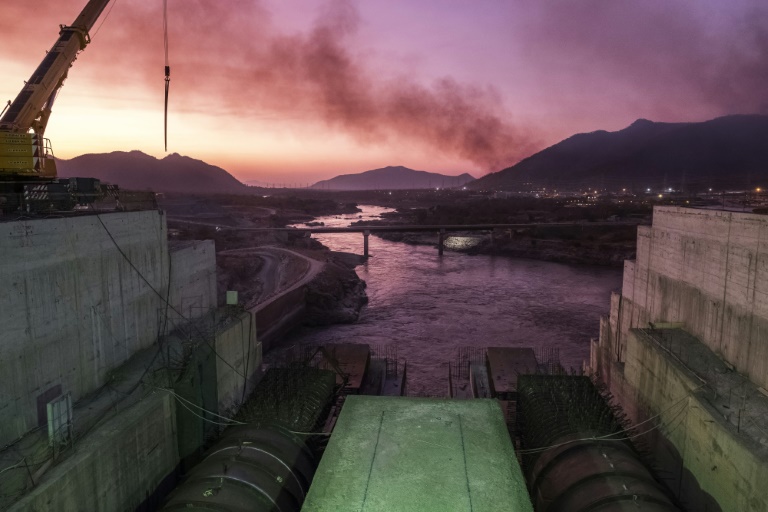
The foreign and water ministers of Egypt, Sudan and Ethiopia will begin the final round of talks on rules for operating and filling the contentious Grand Ethiopian Renaissance Dam (GERD) on Tuesday in Washington DC, where they are set to discuss technical and legal draft agreements prepared last week by experts in Khartoum.
US officials and representatives from the World Bank will also be in attendance.
The ministers of the three countries held earlier meetings in Washington between January 13 and 15 to discuss the results of four rounds of negotiations held under the auspices of the World Bank and the United States.
The last round of talks in Addis Ababa in early January failed to reach a final agreement on filling and operating the new dam in Ethiopia, construction of which began along the Blue Nile in 2011, ahead of an earlier January 15 deadline. Egypt’s government blamed Ethiopia’s “intransigence” on the failure of the talks and has denied that Egypt was under pressure to waive some of its demands in the last round of Renaissance Dam negotiations held in Washington, DC.
Despite the failure of earlier talks, Mohamed al-Sebaei, the official spokesperson of Egypt’s Ministry of Water Resources and Irrigation, said in a statement on January 21 that the three countries had agreed during the Washington meeting earlier this January to reach a comprehensive and sustainable agreement based on cooperation from all parties.
However, legal and technical experts from Ethiopia, Egypt, and Sudan were set to hammer out the details of this final draft agreement during last week’s Khartoum meetings.
Al-Sebaei said Monday that the three countries agreed on six items during the last Washington meeting, which include filling the dam in stages and in an “adaptive and cooperative” manner, taking into account the hydrological conditions of the Blue Nile and the potential impact of filling the new dam on downstream countries, and filling rules during the rainy season, which generally falls from July to August and September, depending on conditions.
Sebaei explained the parties also agreed that the first filling phase of the dam aim to reach 595 meters above sea level, which will be used to generate electricity – a key issue for Ethiopia – while providing appropriate mitigation measures for Egypt and Sudan in the event of severe drought during the filling period.
Subsequent stages of filling will be determined according to a mechanism to be agreed on later, he added.
Sources concerned with the GERD said that the last round of negotiations this week is scheduled to settle various disagreements over nine years of negotiations, adding that the US has achieved “remarkable success” as a mediator.
The last round of negotiations in Washington aims to make sure that the dam’s role is limited to meeting Ethiopia’s electricity needs, the sources said, referencing what same have called Ethiopia’s push toward certain regional political gains “at the expense of Egypt and Sudan.”
Ethiopia is expected to make concessions in return for Egyptian concessions, which the sources claim would not be related to the so-called water crisis.
Egypt, which relies considerably on fresh water from the Nile, has voiced concerns that the GERD would negatively impact the country’s water supply in light of the country’s growing population. Ethiopia, on the other hand, has stressed the importance of the project to bolstering the economy in the country, where more than half of the population currently lives without access to electricity, according to a report from AFP.
Edited translation from Al-Masry Al-Youm



